Lawa Cave – The Stalactite Wonderland of Sai Yok, Kanchanaburi
Hidden deep within the lush forests of Sai Yok District, Kanchanaburi, Lawa Cave is one of Thailand’s most beautiful and significant stalactite and stalagmite caves.
Just a short distance from [River Kwai Resotel Resort] and [The FloatHouse River Kwai Resort], this natural masterpiece offers visitors a chance to explore the mysterious underground world shaped over millions of years.
📍 Location & Visitor Information
- Address: Lawa Cave, Wang Krajae Sub-district, Sai Yok District, Kanchanaburi, Thailand
- Map: https://goo.gl/maps/LKxYyQTEDHE9Xfvp6
- Opening Hours: 08:00 – 16:30 hrs
- Admission Fees:
• Thai Adults 100 THB | Children 50 THB
• Foreign Adults 300 THB | Children 200 THB - Phone: +66 34 686 024
The cave is easily accessible from both River Kwai Resotel and The FloatHouse River Kwai, making it a must-visit attraction for guests seeking nature, adventure, and history in one place.
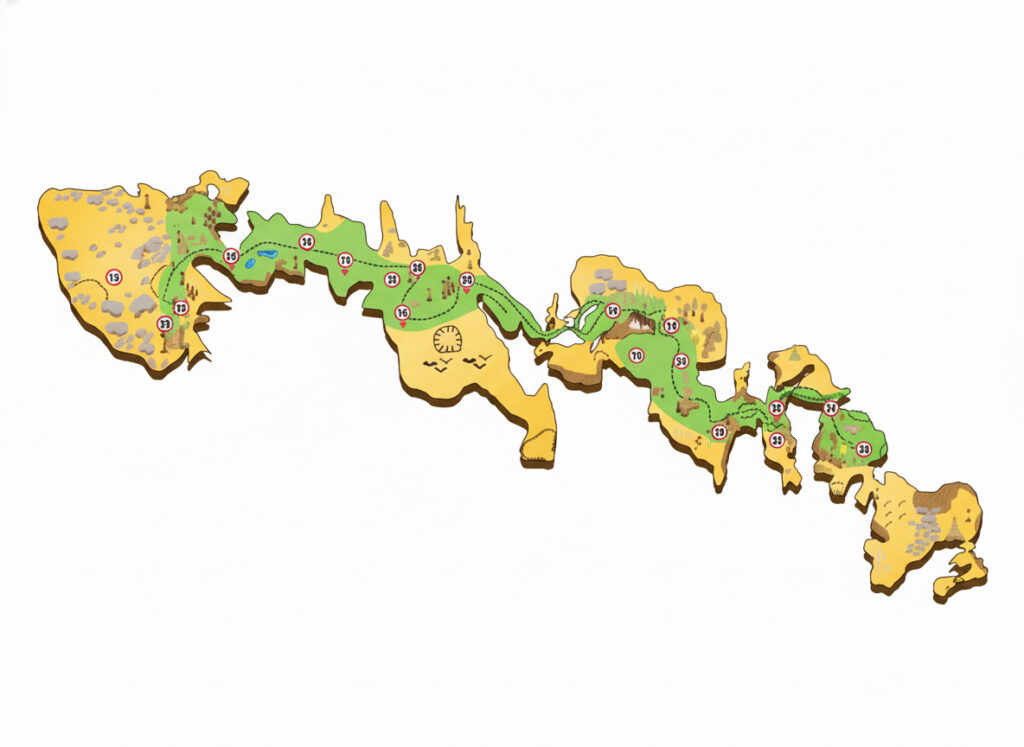
🌄 The Legend of Lawa Cave
According to local tales, the cave was discovered accidentally by a villager named “Uncle Phin,” who once followed animal tracks into the forest near the River Kwai Noi.
After tracing the trail to a cliff, he noticed a mysterious opening and entered — only to find enormous chambers filled with glittering rock formations.
Later archaeological studies uncovered ancient tools, human remains, and evidence of early settlement by the Lawa Tribe, one of the earliest ethnic groups in western Thailand.
Hence, the cave was named “Lawa Cave,” honoring the people who once lived in this region.


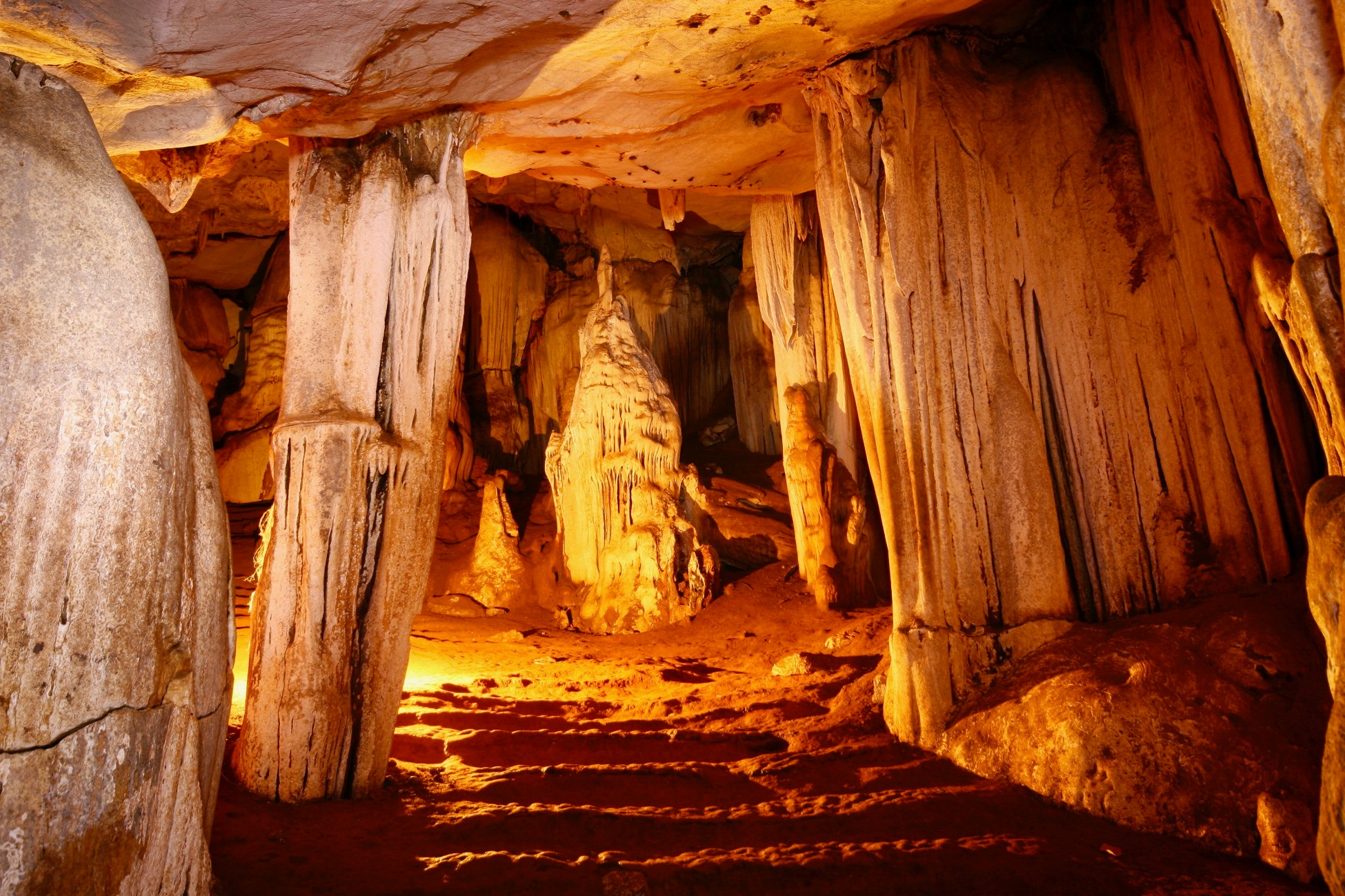
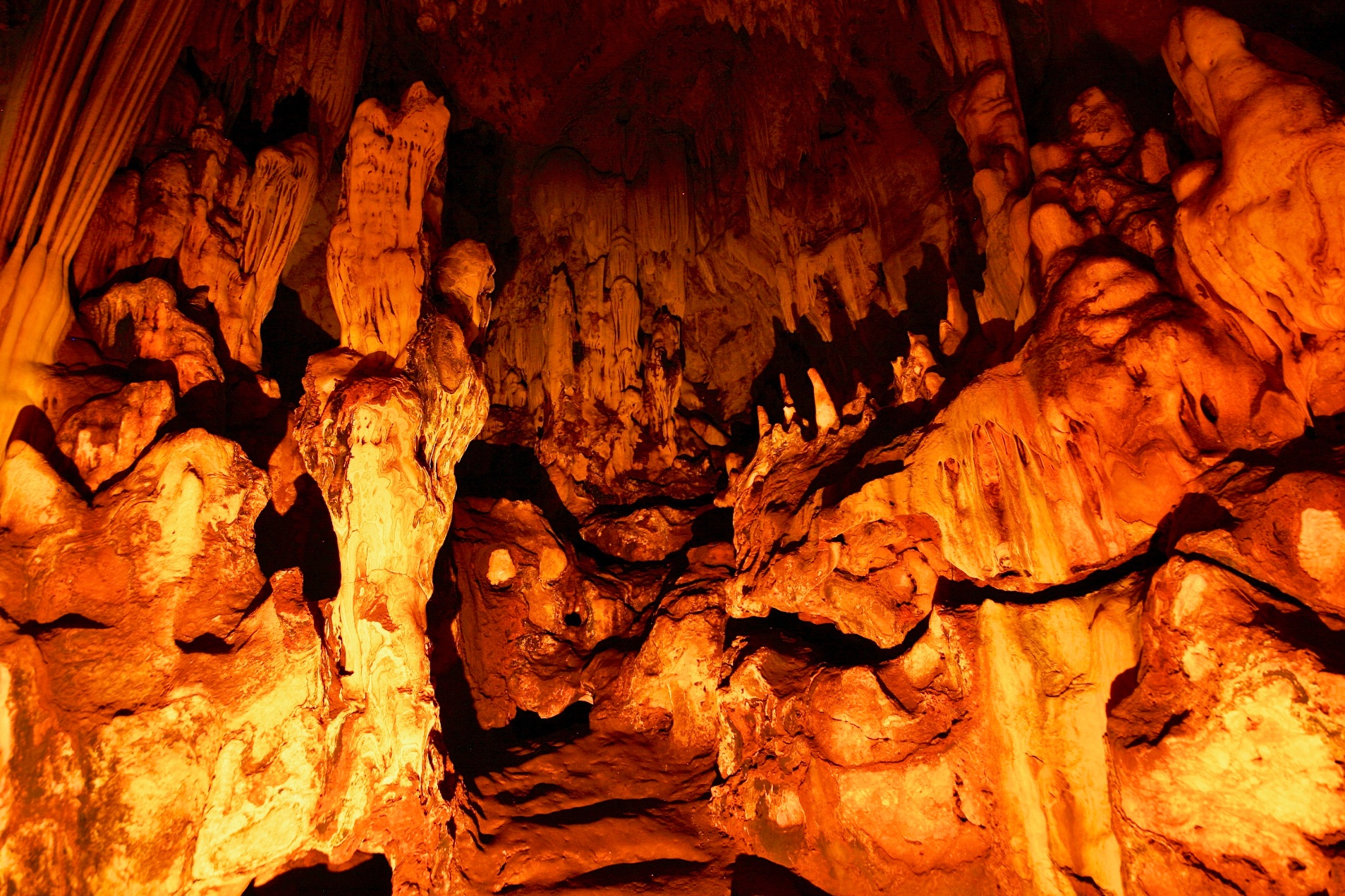
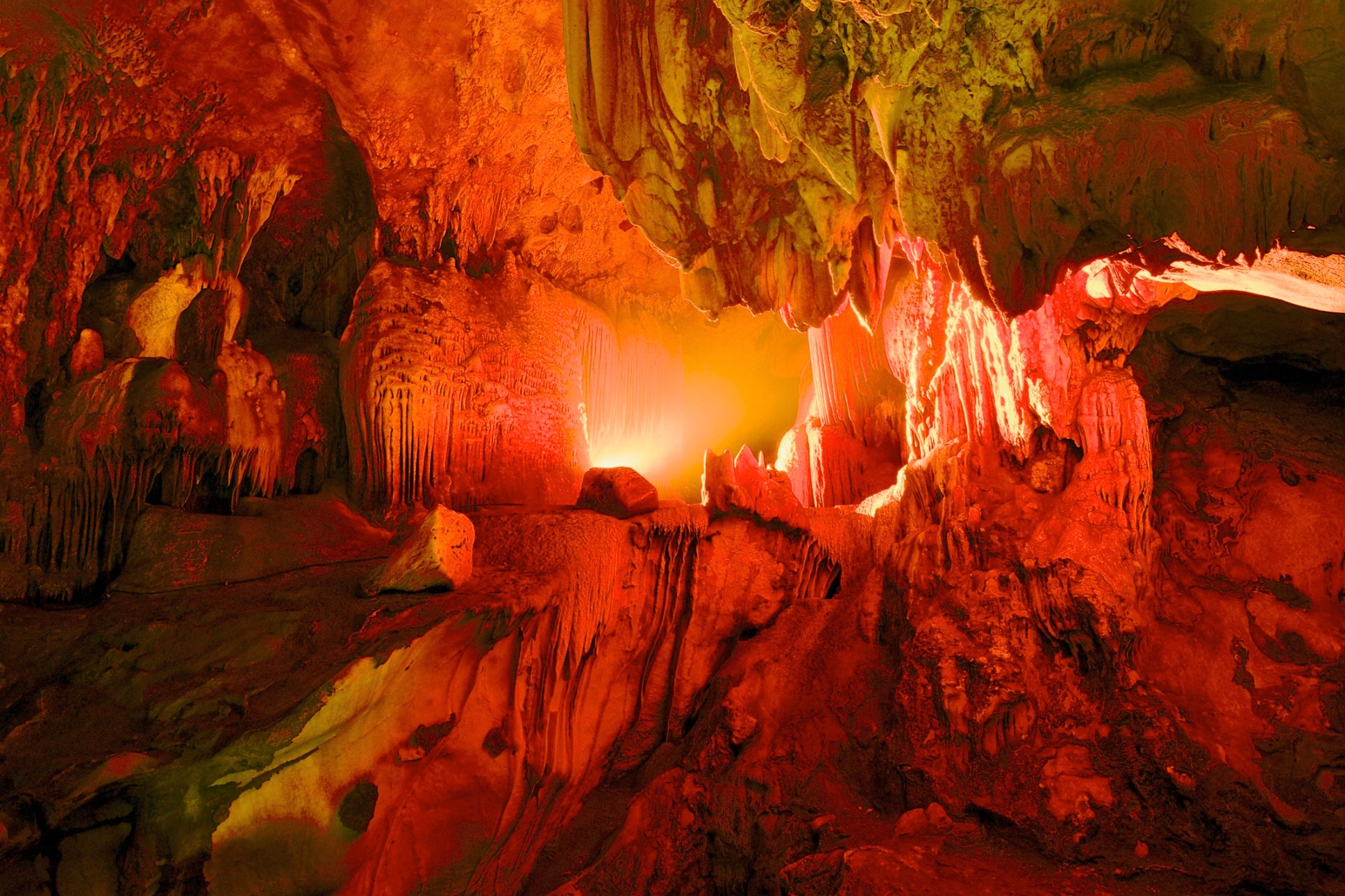


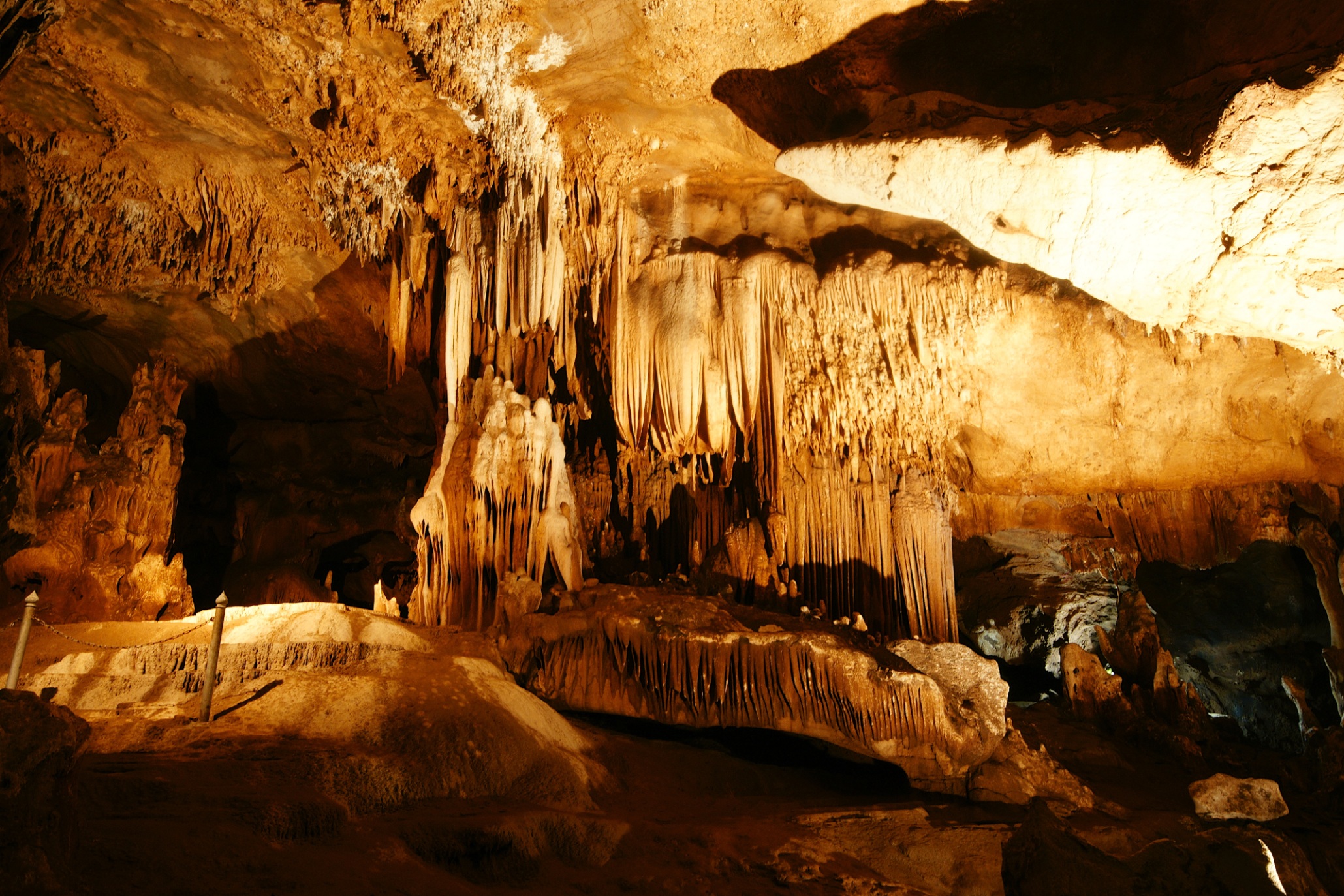
🌋 How Lawa Cave Was Formed – The Karst Landscape
Lawa Cave is part of a karst topography, a landform shaped by the slow dissolution of limestone by rainwater.
When rainwater absorbs carbon dioxide from the atmosphere, it forms a weak acid (carbonic acid – H₂CO₃) that reacts with limestone (CaCO₃).
Over thousands of years, the rock gradually dissolves, creating underground chambers, tunnels, and shafts that later connect into vast cave systems.
💎 What Are Stalactites and Stalagmites?
The magic of Lawa Cave lies in its stunning stalactites and stalagmites — natural mineral formations that have taken millennia to form.
Stalactites and stalagmites are deposits of calcium carbonate (CaCO₃) formed by the slow dripping of water rich in calcium hydrogen carbonate (Ca(HCO₃)₂).
- Stalactites grow down from the ceiling as water drips and leaves behind tiny crystals over time.
- Stalagmites grow up from the ground beneath each stalactite, as dripping water deposits minerals on the floor.
- When the two eventually meet, they form a solid column of stone.
💡 Tip: Please do not touch these formations — the natural oils from human skin can halt their growth and permanently discolor the rock surface.
🪨 Inside the Cave – A Journey Through 18 Chambers
Lawa Cave stretches over 500 meters in length and features 18 unique chambers, each with distinct shapes and formations that spark the imagination. Below are the five most fascinating main halls you should not miss.
1. Hanuman Chamber – The Guardian of the Cave
This chamber gained its name from a rock formation resembling the mythical monkey god Hanuman raising his hand in triumph.
Visitors often stop here to marvel at the natural sculpture that seems to have come to life from the stone walls, a testament to both time and imagination.
2. Crocodile Chamber – The Flow of Stone and Water
The Crocodile Chamber features a vast hall with small sub-rooms and terraced limestone pools formed by mineral deposits over centuries.
During the rainy season, water collects in these basins and flows down in rippling patterns resembling the back of a giant crocodile.
The combination of reflected light and shimmering water creates a scene so beautiful that the name “Crocodile Chamber” was born.
3. Music Chamber – The Sound of the Earth
Perhaps the most intriguing room of all, the Music Chamber is lined with thin, sheet-like stalactites that resonate when tapped.
Each stone produces a different pitch depending on its thickness — like a natural xylophone crafted by time.
However, touching the formations is no longer allowed to prevent damage to these fragile structures.
Today, the room stands silent but still echoes the music of nature for those who listen closely.
4. Bat Chamber – The Living Kingdom of Darkness
Accessible through a narrow passage from the Music Chamber, this large hall reveals the original limestone structure of the cave.
Massive stalactites and stalagmites merge into stone columns that support the ceiling, while hundreds of bats cling to the upper vault.
Their presence brings the cave to life, demonstrating how wildlife and geology can coexist in perfect balance.
5. Sleeping Curtain Chamber – The Final Grandeur
The last and largest hall of Lawa Cave is often called the Sleeping Curtain Chamber for its enormous flowstone draperies that hang like folded silk curtains.
Colored by minerals in the water, these formations gleam in shades of amber and ivory.
Despite the outside heat, this chamber remains surprisingly cool and airy — a natural sanctuary to pause and breathe in the awe of the earth’s artistry.
🌿 Life Within the Cave
Though dimly lit, Lawa Cave is home to a variety of small creatures that adapt to its dark, humid environment — bats, cave crickets, and insects that survive without sunlight.
Their presence maintains the delicate ecosystem that has existed here for centuries, making the cave not just a geological wonder but also a living habitat.
🧭 How to Explore Lawa Cave
Visitors should prepare for a gentle adventure: there are 114 steps leading up from the river and well-maintained walkways inside.
The entire tour takes around 1–2 hours and is suitable for all ages.
A flashlight and non-slip shoes are recommended, especially during the rainy season when some surfaces may be slippery.
The best time to visit is from November to February, when the weather is cool and the cave atmosphere feels refreshingly crisp.
🏞️ Stay with SERENATA – Your Gateway to Lawa Cave
For travelers seeking comfort and convenience after a day of exploring, SERENATA Hotels & Resorts Group offers two remarkable properties near Lawa Cave:
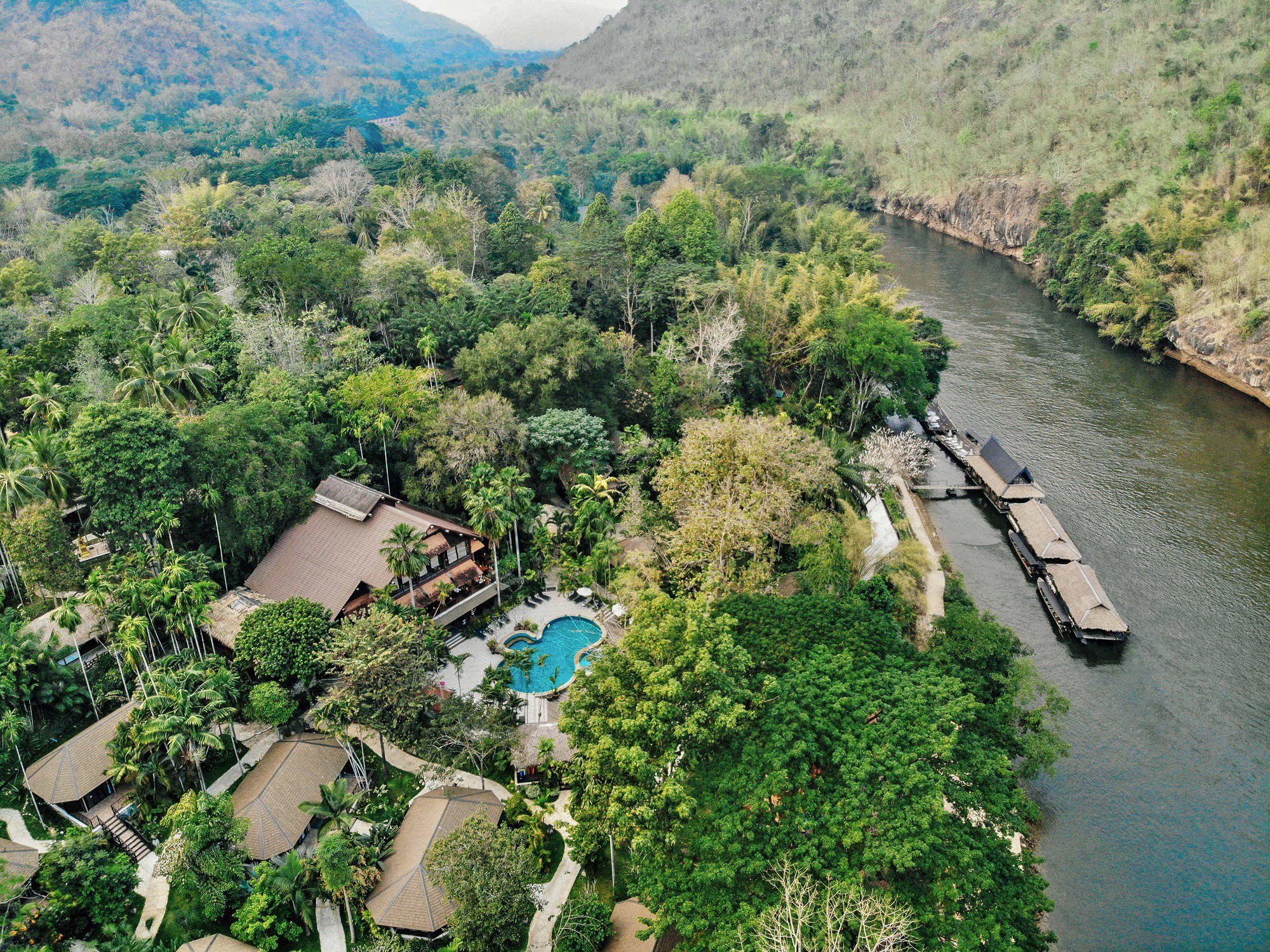
[River Kwai Resotel Resort]
Nestled amid the lush jungle along the River Kwai Noi, this eco-resort offers a serene escape with private balconies, a riverside pool, and authentic Thai cuisine. It’s an ideal base for nature trips, family stays, or romantic getaways in Sai Yok.
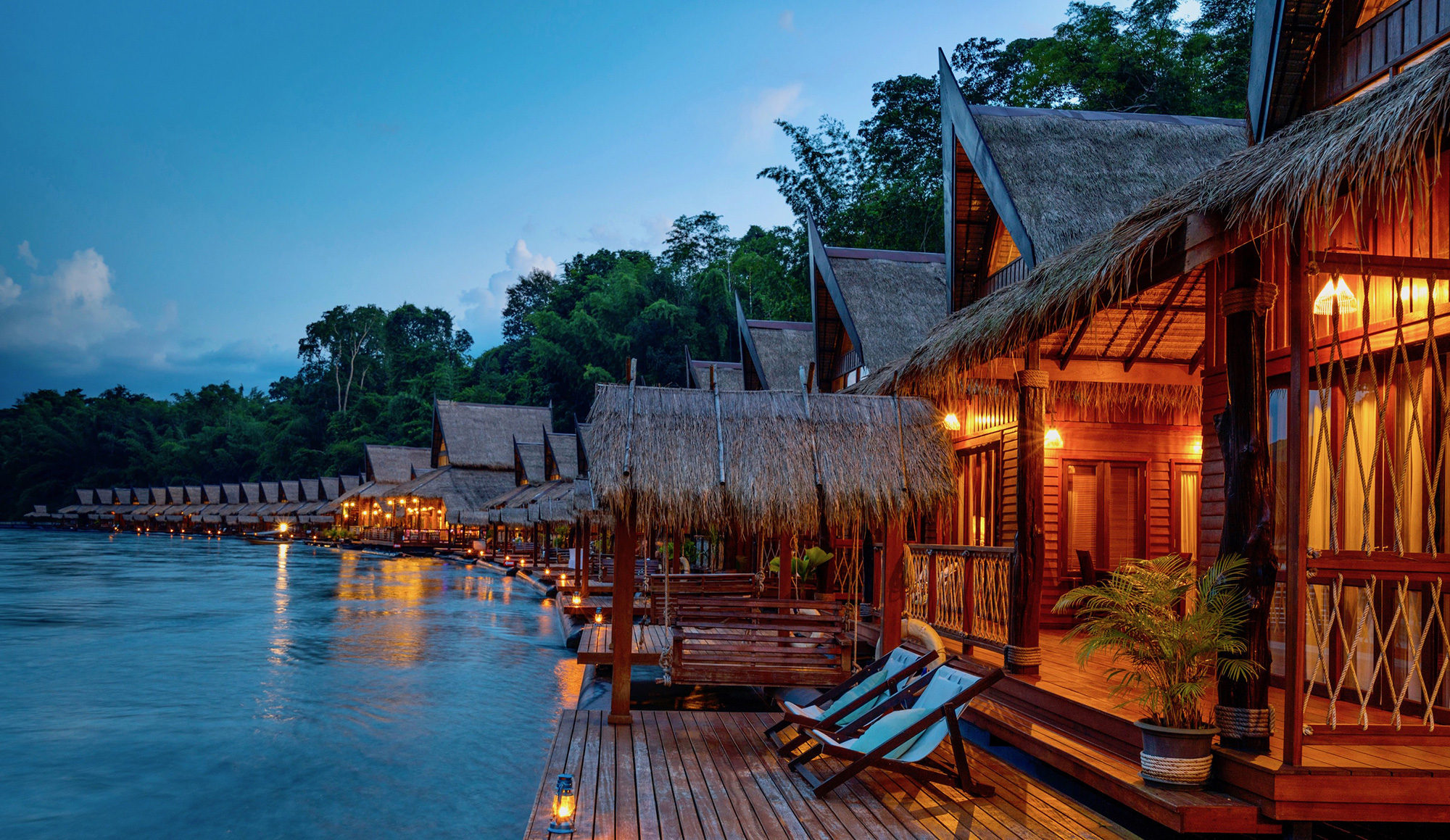
[The FloatHouse River Kwai Resort]
One of Thailand’s most unique floating resorts, The FloatHouse features luxury villas floating directly on the River Kwai. Guests can wake up to morning mist over the river before embarking on a short journey to Lawa Cave or other nearby attractions.
Both resorts blend comfort with sustainability, reflecting SERENATA’s philosophy of creating “Memorable Journeys Beyond Stays.”
🌏 Why Lawa Cave Is a Must-Visit in Kanchanaburi
- The largest stalactite and stalagmite cave in Sai Yok National Park.
- Easily accessible from River Kwai Resotel and The FloatHouse River Kwai.
- A rare blend of geology, ecology, and ancient Lawa culture.
- 18 unique chambers filled with natural rock art and imagination.
Visiting Lawa Cave is more than a sightseeing trip — it’s a journey through time and the living art of nature.
🧡 Plan Your Journey with SERENATA
Explore the mystical beauty of Lawa Cave, stay along the majestic River Kwai, and discover the heart of Sai Yok National Park with SERENATA Hotels & Resorts Group.
For more information and direct booking, visit:
🌐 www.serenatahotels.com
and explore our collection of river, heritage, and nature resorts across Thailand.
